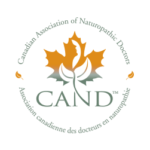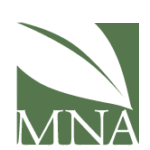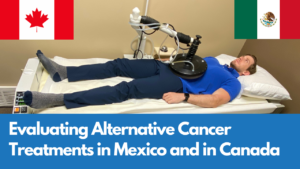Understanding Central Nervous System (CNS) Lymphoma
A cancer diagnosis can be incredibly daunting and life-altering. Today, we’ll delve into a specific type of cancer: Central Nervous System (CNS) non-Hodgkin’s lymphoma. While rare, understanding this condition and its potential management options can empower individuals to navigate this journey.
We’ll be arming you with the necessary information to navigate the challenge of understanding and living with Central Nervous System Non-Hodgkin’s Lymphoma.
We think it will be helpful to first read some of our Frequently Asked Questions from our patients and visitors to Dr. Ceaser’s website. Following the FAQ’s we take a deep dive into CNS Non-Hodgkin’s Lymphoma. We will then conclude with a real-life case study of a patient treated by Dr. Ceasar, showcasing the resilience of the human spirit with the support of both standard + naturopathic care.
Frequently Asked Questions
What is Non-Hodgkin’s Lymphoma?
Non-Hodgkin’s Lymphoma (NHL) is a rather rare and peculiar type of cancer that takes root in the brain, spinal cord, or even the spinal fluid. Sometimes, it even hides behind the eye.
What is Hodgkin’s Lymphoma?
A type of cancer that originates in the lymphocytes, which are white blood cells crucial to the body’s immune system. This disease is characterized by the presence of Reed-Sternberg cells, and it can cause swollen lymph nodes and growths throughout the body.
What is the difference between Hodgkin’s Lymphoma and Non-Hodgkin’s Lymphoma?
Hodgkin’s Lymphoma and Non-Hodgkin’s Lymphoma are both lymphomas, cancers of the lymphocytes. The presence of a Reed-Sternberg cell classifies the lymphoma as Hodgkin’s, while its absence leads to a non-Hodgkin’s classification
How do you diagnose Non-Hodgkin’s Lymphoma?
Symptoms of NHL may include nausea, vomiting, weakness in limbs, hearing loss, difficulty swallowing, signs of brain pressure like headaches and confusion, vision problems, changes in mental state, seizures, and incontinence.
What treatment options are available?
Treatment for NHL generally does not include surgery but relies on nonsurgical treatments like corticosteroids, chemotherapy, and/or whole-brain radiation therapy
What is the prognosis?
The prognosis varies, but treatment can lead to long-term survival in 15–20% of people with NHL
What are some of the naturopathic approaches used to support CNS Lymphoma treatment?
These include diet and nutrition recommendations, behavioural change, homeopathy, hydrotherapy, and manipulative therapy.
What is the role of naturopathic medicine in managing CNS Lymphoma?
By using natural methods to strengthen the body’s healing ability and alleviate symptoms.
By The Numbers
- CNS Lymphoma accounts for roughly 4% of all cancers diagnosed in the United States.
- Worldwide, an estimated 544,352 people were diagnosed with NHL in 2020.
- Can occur at any age, but the risk increases with age.
- Over half of patients are 65 or older when diagnosed.
- Overall, the chance that a man will develop NHL in his lifetime is about 1 in 42; for a woman, the risk is about 1 in 52.
- Death rate has been improving since 1997, thanks to treatment advances. From 2011 to 2020, the death rate dropped by 2% every year. (View All Pages | Cancer.Net)
Demystifying Central Nervous System Lymphoma: A Deep Dive with Dr. Ceaser
Let’s delve into the complexities of Central Nervous System (CNS) lymphoma. We’ll break down what this rare type of cancer entails, where it shows up, and who it might affect.
The Lymphatic System: Body On Defense
The Lymphatic System is a network of tissues and organs that play a vital role in your immune system. It helps fight infection and disease by:
- Transporting lymph fluid: This fluid contains white blood cells, including lymphocytes, which help fight infection.
- Filtering out waste products and toxins: The lymph nodes, which are bean-shaped organs located throughout your body, act as filters, trapping bacteria, viruses, and other harmful substances.
- Producing lymphocytes: Lymph nodes and other lymphatic organs, like the spleen and thymus, produce lymphocytes, which are essential for fighting infection.
Here are some of the different types of lymphoid cells:
- B lymphocytes (B cells): These cells mature in the bone marrow and produce antibodies, which are proteins that target and destroy specific pathogens (disease-causing organisms)
- T lymphocytes (T cells): These cells mature in the thymus and help to directly attack infected cells and regulate the immune response.
- Natural killer (NK) cells: These cells are a type of lymphocyte that can attack a wide variety of infected cells and tumour cells without needing prior exposure to the specific threat.
Understanding the Enemy: What is CNS Lymphoma?
Imagine your body’s defence system, the lymph nodes, acting like a network of security checkpoints. Sometimes, abnormal cells can arise within these checkpoints, and in CNS lymphoma, these malignant cells take root in your brain, spinal cord, or even your eyes. This can happen in two ways:
Primary: These rogue cells set up shop directly within the CNS, making up a small percentage of all brain tumours.
Secondary: These troublemakers spread from existing non-Hodgkin’s lymphoma elsewhere in the body, infiltrating the CNS like unwanted visitors.
It’s important to note that the eye, due to its proximity to the brain, can also be a starting point for primary CNS lymphoma, which is known as ocular lymphoma. Additionally, the cancer can involve the spinal fluid surrounding your brain and spinal cord, referred to as leptomeningeal lymphoma.
Symptoms to Watch For:
Early symptoms of CNS lymphoma can be subtle and mimic other neurological conditions. If you experience any of the following, seeking professional medical evaluation is crucial:
- Persistent or worsening headaches
- Seizures
- Vision problems like blurred vision or loss of vision in one eye
- Difficulty with balance or coordination
- Speech problems
- Memory problems
- Numbness or weakness in an arm or leg
- Changes in personality or behaviour
Want More General Information About Various Types of Brain Tumours + Naturopathic Medicine? Click Here to Read Transforming Brain Cancer Prognosis: Winnipeg’s Naturopathic Success Stories
Diagnosing CNS Lymphoma
A multi-step process often determined by your medical team that includes
Neurological Examination
Assessing your mental function, reflexes, and coordination.
Imaging Tests: MRI scans with contrast dye are commonly used to visualize the brain and spinal cord for abnormalities.
Lumbar Puncture
A sample of cerebrospinal fluid (CSF) surrounding the brain and spinal cord is collected and analyzed for the presence of cancer cells.
Biopsy
In some cases, a tissue sample is obtained through surgery or a needle aspiration for a definitive diagnosis.
Standard medical treatment options for CNS lymphoma
Typically involve a combination of corticosteroids, medications that help reduce inflammation and swelling in the brain.
Chemotherapy
Powerful drugs are used to kill cancer cells.
Radiation therapy
High-energy beams target and destroy cancer cells.
Stem cell transplant: In some cases, this procedure may be used to replace damaged bone marrow with healthy stem cells.
Naturopathic Support for Your Journey
While conventional medicine remains the primary approach for managing CNS lymphoma, naturopathic medicine can offer complementary support alongside your existing treatment plan. This holistic approach focuses on strengthening your body’s natural healing potential and improving overall well-being. Health Canada’s regulations means we can’t share any specific Naturopathic protocols online, however if you have further questions please contact our office for a free consultation.
Personalized Nutritional Guidance
A naturopathic doctor can create a customized diet rich in essential vitamins, minerals, and antioxidants to support your immune system and overall health. This may involve incorporating specific foods and potentially excluding others based on your individual needs and condition.
Stress Management Techniques
Chronic stress can negatively impact your immune function. Techniques like mindfulness meditation, yoga, or deep breathing exercises can be helpful tools for managing stress and promoting relaxation, potentially improving your quality of life.
Botanical Medicine
Under the guidance of a qualified naturopathic doctor, certain herbs and botanicals may offer potential benefits in managing specific symptoms or side effects associated with conventional treatments. It’s crucial to remember that these should never be used as a replacement for prescribed medications and open communication with your medical team is essential.
Lifestyle Modifications
Regular exercise, adequate sleep, and healthy sleep hygiene practices can positively impact your overall well-being and potentially support your body’s healing process.
A Word about Collaboration and Open Communication:
It’s crucial to understand that naturopathic support is intended to complement, not replace, conventional medical care. Open communication and collaboration with your entire healthcare team, including your oncologist, naturopathic doctor, and any other healthcare professionals involved in your care, are essential for ensuring a safe and effective approach to managing your health. Sharing all information about your treatment plan and any complementary therapies you’re considering with your medical team fosters a comprehensive and collaborative approach to your well-being.
From Theory to Practise
Today, we’ve embarked on a focused exploration—a spotlight on a specific adversary: Central Nervous System (CNS) non-Hodgkin’s lymphoma. While rare, comprehending this condition and its potential management options empowers individuals to navigate their unique path. We’ve armed you with essential knowledge to face the challenge of understanding and living with CNS Non-Hodgkin’s Lymphoma. But now, let’s illuminate a beacon of hope—a real-life case study, where Dr. Ceasar’s expertise intertwines with the resilience of the human spirit, bolstered by both conventional and naturopathic care.
Case Study: A Glimpse into the Potential Benefits of Naturopathic Support
While individual results may vary, and specific details cannot be disclosed due to ethical and legal considerations, sharing a brief case study can illustrate the potential benefits of naturopathic support alongside conventional treatment.
Case Study 3: Central Nervous System Lymphoma
Dr. Ceaser presents a 70-year-old patient diagnosed with Central Nervous System Lymphoma, a unique brain cancer. Standard treatments included rituximab and methotrexate, which caused severe side effects. Integrating naturopathic therapies alongside these treatments led to the brain tumour’s disappearance and a successful outcome.
Dr. Ceaser’s Recap
“This case involves Central Nervous System Lymphoma, which is a different, unique kind of brain cancer. And as a 70-year-old wonderful patient, she had gone through her treatments, her standard treatments of rituximab, which is a monoclonal antibody. These are newer therapies that are used along with chemotherapy. Monoclonal antibody therapies target specific flags that are found on certain tumours that have to do with the immune system, and by targeting that, hopefully we can get some tumour reduction. She’s on rituximab. As well as she’s on a high dose of methotrexate.
However, she was suffering side effects from both of these together, and both of them can be quite limiting as far as the red blood cells, white blood cells, fatigue, nausea, vomiting. These are often side effects. The expectancy is that she probably will not improve with these therapies. However, we did add naturopathic therapies in with the protocol that she was given, which I can’t go into detail because of Health Canada regulations, so I can’t give you the specifics on it, but our protocols work together with things like rituximab and with methotrexate to help to enhance the therapies and to help provide so that there’s not so many side effects. This patient did very, very well, and actually the oncologist was quite excited to tell her on her follow-up MRI that she had, that he said, ‘whatever was there is gone.’ So essentially the tumours had disappeared.”
Conclusion
Dr. Sean Ceaser’s Cancer Treatment Centre in Winnipeg, Manitoba, offers hope for Central Nervous System Lymphoma patients to maintain a high quality of life. The experiences of these individuals demonstrate the potential of naturopathic treatments alongside standard therapies to extend lives and enhance the quality of life. In the face of a Central Nervous System Lymphoma cancer diagnosis, there is not just hope but a path toward a better future—a future where patients can benefit from a multidisciplinary care team that integrates the best of naturopathy and traditional medicine.






